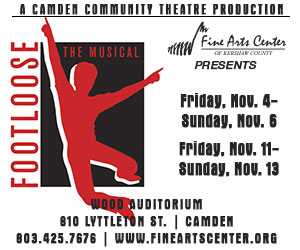Film Review: Love and Mercy
An effectively stylized glimpse into Beach Boys mastermind Brian Wilson’s troubled life composing what remains as the arguable pinnacle of the modern American popular music canon, in the brilliant Love and Mercy we find depicted his mid-1960s creative eruption as well as the sad, bizarre interlude twenty years later when the shattered Wilson, his work by then rightly venerated and admired, nevertheless found himself under the mental and chemical duress of an avaricious vampire posing as devoted therapist.
In the film’s boldest stylistic conceit, the overlapping, intersecting movements of this symphony find Wilson portrayed by two capable, established actors: Paul Dano (There Will Be Blood) and the top-billed John Cusack (High Fidelity). Neither of them look especially like Wilson (nor each other), but then Love and Mercy isn’t seeking a reading as a standard biopic of a troubled artist’s rise and fall, so it’s probably reductive to criticize the visual verisimilitude of the actors (Todd Haynes’s highly stylized I’m Not There, a six-actor portrayal of key moments in Bob Dylan’s life, carries out this conceit ad extremum.)
But in that biographical sense, Beach Boys fans familiar or not with the backstage stories will no doubt find much red meat to enjoy. Being cognizant of most of the details of the Wilson story gave this reviewer great pleasure at seeing the often deft inclusion of a myriad of compelling biographical detail regarding the band, the creative rivalry with The Beatles, the controlling and abusive father figure, Brian’s aversion to touring, the mythical recording sessions, and so on.
Brian Wilson of both timeframes seems trapped in a circular, living hell of abusers, all of them ‘with his best interest’ in mind, including bandmate and cousin Mike Love (Jake Abel), who argues for the abandonment of Wilson’s masterpiece SMiLE
If any aspect of the narrative suffers under the weight of biopic expectations, it’s the often hard-working expository dialogue, used by necessity to fill us in on the broader details of the Wilson’s creative journey and his band’s place in the pop cultural milieu of the times. Again, little of this material feels particularly revelatory; if you know the story, you won’t learn much new.
But it’s the singer and not the song, as they say, and here Dano’s more accurate physical performance of the composer delights and saddens often within the same scene, while the melancholic baggage of the mind-controlled, isolated
At last, however, someone comes into Brian’s life who wants to help him: after an encounter on the showroom floor where she sells Cadillacs, Melinda (Elizabeth Banks), becomes attracted, and later appalled by, his pathetic situation as the literal prisoner of one Dr. Eugene Lundy (Paul Giamatti).
Ostensibly he’s Brian Wilson’s savior, but Melinda quickly sees how the controlling Lundy clearly profits from the supposedly clinical relationship, while at the same time employing a wildly abusive shout-therapy probably quite reminiscent of Wilson’s having grown up with a father who not only exploited his sons into stardom, but also beat them. Once Melinda hears Brian’s sad pleas about being over-medicated and legally separated from his family she decides to act, but it won’t be easy. Again, in the standard biopic we’d be treated to the dramatic courtroom battle over Brian Wilson’s guardianship, but here it’s only the emotional beats in which we’re interested, which is to the story’s ultimate benefit.
While the back-and-forth cutting keeps the dual plot lines moving at a brisk pace, the storytelling never seems rushed, and the scope of the film remains focused and compelling from start to finish. Special commendation goes out to the sound design and music teams, both in terms of the recording session-scenes of Wilson crafting Pet Sounds and later SMiLE.
After producing credits on a number of well-received pictures (12 Years a Slave, Into the Wild), Bill Pohland arrives on the feature directorial scene with as accomplished a first effort as we’ve seen in some time, one that’s sure to attract ample awards attention later this year, in particular for its leads (Dano and Banks) and key supporting role (Cusack). Kudos to all involved in crafting this lyrical cautionary tale about the foibles of a sensitive genius stirred by the voices in his head to create great art, but surrounded by money-grubbers and myopic, opportunistic







.jpg)
